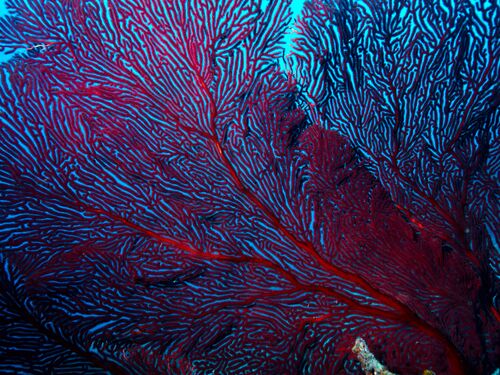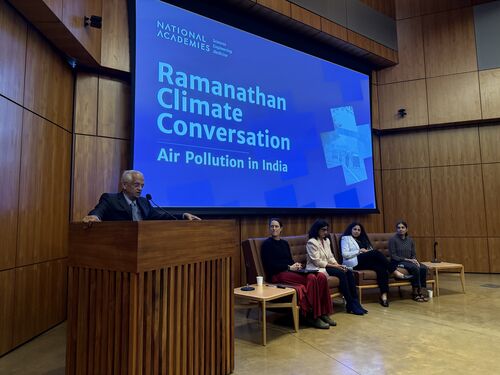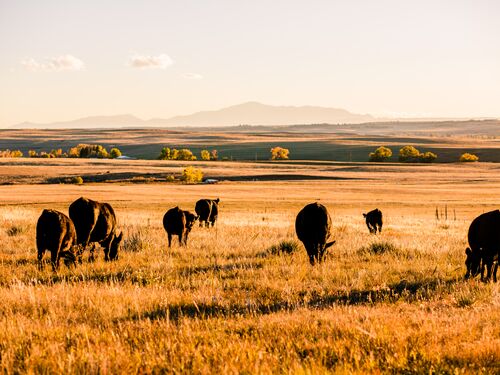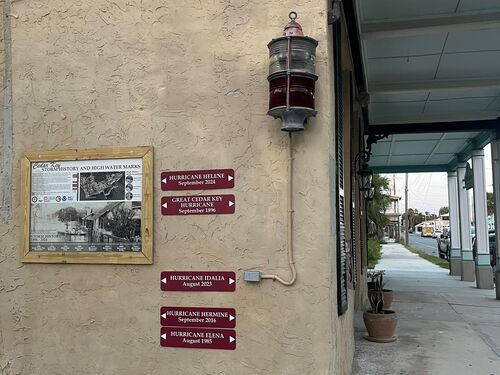What Does a Changing Climate Mean for the Fish on Your Plate?
Program News
By Stephanie Miceli
Last update February 1, 2021

Research by Gulf Research Program Early-Career Research Fellow Amina Schartup Explores How Mercury Levels in Fish May Rise with Climate Change
Amina Schartup’s research seeks to answer a specific question: Does climate change affect the mercury levels in fish? But she likes to tell people she studies karma.
“I say I study karma, because from the time we get up, to the time we turn off the lights before bed — all our actions affect our planet,” says Schartup, an assistant professor at Scripps Institution of Oceanography and a current Gulf Research Program (GRP) Early-Career Research Fellow. “The simple act of turning on the lights — that emits mercury.”
Mercury is a heavy metal found naturally in air, water, and soil. It is also released into the environment through human industrial activities (such as burning coal or household trash, and through small-scale artisanal gold mining). Once mercury leaves a power plant, it lingers in the atmosphere and can travel for thousands of miles. Eventually, it falls into the ocean or other large bodies of water, where it can turn into a highly toxic form called methylmercury.
When methylmercury accumulates in fish, the consequences show up on our dinner plates and in our bodies, says Schartup. Mercury exposure is especially dangerous for young children and pregnant women, since it can affect the developing brain and nervous system.
One of Schartup’s research interests is how different climate change variables affect the mercury content in fish. For example, if seawater temperature increases, will there be a higher or lower concentration of mercury in fish? What happens if we’re burning less coal — and thus emitting less mercury?
“When we talk about climate change, it’s almost always related to weather. But as scientists, we should do a better job of communicating how climate change relates to all aspects of our lives, including the quantity and quality of our food,” says Schartup. “Climate changes impact the quality of soil and water, and the nutrients that are essential for us. You may have fish the same size, but how nutritious is it? It could look the same, smell the same, but not have the same nutritious quality.”
During her fellowship, Schartup published a paper that explores whether sea ice is a major reservoir of mercury in the Arctic Ocean. Historically, research has hypothesized that losing older sea ice would result in less mercury. However, she concluded that even though there is less old sea ice, younger sea ice — the kind that forms every winter and melts every summer — has a greater concentration of organic mercury. This has implications for the whole food web, from plankton to people.
“It was a great project because sea ice cores are fun, and I got to work with my friends and co-authors Anne Soerensen and Lars-Eric Heimbürger-Boavida, who collected the cores,” she says.
The Early-Career Research Fellowship supports research of this nature — bold, untested ideas the fellows might not be able to pursue otherwise. Because the early years of a researcher’s career are a critical time, the relatively unrestricted funds and mentoring this fellowship provides help recipients navigate this period with independence, flexibility, and a built-in support network.
From Azerbaijan to the Amazon, Many Roads Lead to Mercury
There wasn’t one “aha” moment that led Schartup to dedicate her research to mercury emissions. Rather, it was a series of childhood memories, and experiences with environmental injustices, from her international upbringing.
“I connect countries to smells,” says Schartup, who was born and raised in Azerbaijan. “It’s a big oil country. When I was young, I thought the water looked pretty because it was shimmering. Little did I know that shimmer was from oil spills, and I was swimming in it without question.”
The family then moved to Mauritania, where she became interested in fishing and the quality of life, and later to Mali, where she saw a “slew of environmental problems that were left out in the open for us to literally step into.” When she moved to France for graduate school, she saw those same issues, though they were “hidden” in landfills away from the city. Eventually, her graduate studies involved researching organic matter and metal exports from the Amazon River. This is how she stumbled upon literature on mercury emissions from the artisanal gold mining industry, and decided to pursue a Ph.D. with professor Robert Mason, a mercury expert at the University of Connecticut.
It might seem like a niche focus, Schartup says, but mercury is a topic that intersects with climate policy, cultures and economies at work, and even storytelling.
“As part of the fellowship orientation, GRP brought in a science journalist who coached us on framing our research in a compelling way,” she says. “We often want to get our research in front of policy decision-makers. But I’d also like to get inside the minds of people who market soft drinks, for instance. They’ve convinced us that something mediocre is delicious — and in some countries, it’s a marker of social status. If we can use these tactics in a negative direction … why can’t we use them for good, like when it comes to reducing emissions and contaminants?”
The Fellowship’s ‘Exponential Impact’
When contemplating her next career move, Schartup has looked at other people’s trajectories to see how they got where they are.
“I found many people who are similar in profile to me were alums of Gulf Research Program fellowships, and that’s how I came to apply to the ECRF,” she says.
Schartup, who joined Scripps in 2019, says her research interests had a natural connection to the Gulf. Mercury reaches unsafe levels for human consumption in some Gulf Coast fish (e.g. sharks, tilefish), and scientists are still trying to figure out the impact of the Deepwater Horizon oil spill in 2010 on Gulf seafood quality. Further, the unique atmospheric conditions along the coast of the Gulf of Mexico make it prone to a high atmospheric deposition of mercury.
“Being a brand new assistant professor, I’m building my lab and building my team. This fellowship came at a time where it’s going to have exponential impact on my career,” says Schartup.
Further Reading
More like this
Discover
Events
Right Now & Next Up
Stay in the loop with can’t-miss sessions, live events, and activities happening over the next two days.
NAS Building Guided Tours Available!
Participate in a one-hour guided tour of the historic National Academy of Sciences building, highlighting its distinctive architecture, renowned artwork, and the intersection of art, science, and culture.



